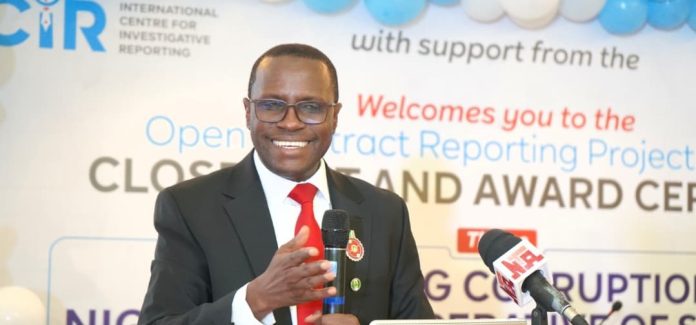News Investigators/ The Independent Corrupt Practices And Other Related Offences Commission (ICPC) has called on Attorneys-General to uphold the rule of law by effecting the Supreme Court judgment on Local Government financial autonomy.
Musa Adamu Aliyu (SAN), ICPC Chairman, made the call on Monday in Akure during a one-day roundtable engagement with State Attorneys-General in the South West on Strengthening ICPC Capacity for Corruption Prevention.
The theme of the event was ‘Institutional Integrity and Regional Cooperation: The Role of Attorneys-General in Advancing A Corruption Free South West’.
Mr Aliyu said the commission had taken steps to educate local government councils and other Nigerians about the meaning and implications of the Supreme Court decision through educational and awareness programmes.
“There are court orders restraining us from tracking the remittances and expenditures of local government funds in some states,
“I feel it is obligatory for ministers in the temple of justice, endowed with enforcement powers, to uphold the rule of law by giving effect to the Supreme Court judgment on the subject matter.
“Local communities in Nigeria are in dire need of welfare, sustenance, and protection from the obstacles that push government resources beyond their reach.
“We must fulfil our responsibilities to actualise their hopes for survival and development, which remain grim 65 years after independence.
“The ICPC cannot do it alone, because Nigeria is a large nation, and corruption is a complex phenomenon that has obstinately cloaked our potential for development,” he said.
The Keynote Speaker, Moyosore Onigbanjo (SAN), a Former Attorney-General of Lagos State, said it had become imperative for attorneys-general to give advice to the executives to follow and do the right thing.
According him, the office of the attorneys-general should not be be about the laws in existence, but more about the character of the people who occupy these offices.
”So, it is not so much about the laws in existence, but more about the character of the people who occupy these offices.
“Do you have a governor who wants the rule of law to thrive? Do you have an attorne-general whose fidelity is to the rule of law? Who is ready to advise?.
“We need a attorneys-general who will tell his principal that a course of action is not in accordance with the law, and that due process should be followed,” he said.
Mr Onigbanjo frowned at people calling for separate offices for the attorneys-general and commissioner of justice.
He said it was better to stick with the status quo, but focus more on the character and quality of the people who occupied the office.
“We don’t need that now. We also do not need to increase the cost of governance, because if you separate those two offices, you are talking about creating another — it’s like having two Ministries of Justice.
“Rather, put in place structural reforms, capacity building, and adopt technology for more transparency in the decision process.
“So that people will have confidence and not feel that executive interest, government interest, or politics will triumph over the rule of law,” Onigbanjo said.
The News Agency of Nigeria (NAN) reports that Attorneys-General of Osun, Ekiti, Ondo, Ogun, and Lagos State were present at the roundtable engagement.
Also represented were the Chairman of the Senate Committee on Anti-Corruption and Financial Crimes, Sen. Emmanuel Udende and the Chairman of the House Committee on Anti-Corruption, Prince Kayode M. Akiolu, among others.
NAN


